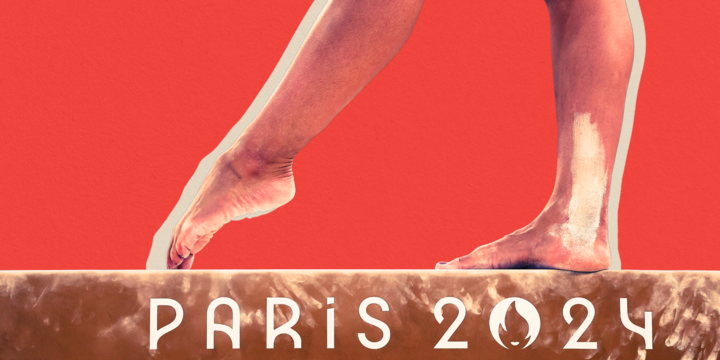French Olympic gymnast Youna Dufournet, who competed in the 2012 London Olympics, said on another athlete’s YouTube channel that she often dealt with water retention during her period that would make her gain “at least four pounds.” “When I was a gymnast, that’s something I could immediately feel. We are lifting our body weight on a daily basis, so it wasn’t easy,” she said, adding that cramps, back pain, and fatigue were the norm on her period and would often make it hard to get a good night’s sleep before competitions. And any time they had to wear white leotards, Dufournet said she and her team would “get stressed out.”
Athletes competing in other sports have described similar feelings. Chinese swimmer Fu Yuanhui was hunched over in pain during an interview after she had just missed her chance at a medal in the 2016 Rio Games. She said her period had started the night before and she felt very weak and tired. Israeli marathon runner Lonah Chemtai Salpeter said her period cramps were so bad at the Tokyo Olympics that she had to stop to take a break during her race. US Olympic swimmer Katie Meili told Teen Vogue in 2017: “There have been times when swimmers get their periods at the worst possible moments, like at the Olympics or at Worlds. It’s not an option to not compete. Like anything in life, when you get your period you just have to deal with it and move on.”
It’s hard to study how period-related hormone changes actually affect performance in female athletes because of how much variability is at play, so most of them tend to come up with “inconsistent results.” (Even though all you have to do is ask the athletes to find out!) Some people are extra sensitive to menstrual hormone shifts; others may be taking contraceptives, which each have different amounts and types of hormones; and others have menstrual disorders that can make periods heavier and more painful.
A 2019 study of 45 professional female gymnasts in Poland found that 60% of the athletes had hypermenorrhagia, which is when you bleed so much you soak two or more tampons or pads every hour. Other research shows that a lot of gymnasts, (compared to other athletes or the general public) get their periods much later than average—so anytime after age 15—or barely get their periods at all. In some cases, this is because of what the International Olympic Committee calls relative energy deficiency in sport (RED-S). This happens when an athlete burns more calories than they take in, and it’s especially common in gymnasts. This low energy over time affects their periods, bone health, and ability to fight infections, recover from training, and heal muscle injuries. (It used to be known as the “female athlete triad” before experts found that men can experience this too.)
A 2023 survey found that about 66% of 195 Australian female athletes training for the Tokyo Olympics or Paralympics said that their periods affected their performance, with most of them reporting pain, bloating, and low energy.
The Paris 2024 Games are the first Olympics in history to reach full gender parity, meaning exactly 50% of the athletes are female, yet women make up only 39% of participants in sports studies. British sprinter Dina Asher-Smith, who’s set to compete against Sha’Carri Richardson in Paris, is just one of many female athletes trying to change that. In 2022, she publicly called for more research into how menstruation affects athletic performance after her own period cramps jeopardized one of her races. “It could do with more funding,” she told the BBC, “because if it was a men’s issue, we would have a million different ways to combat [it].”
SELF is your one-click source for all things Summer Olympics. Read our latest coverage of the Paris Games here.
Related:
Get more of SELF’s great journalism delivered right to your inbox—for free.
















Leave a Reply